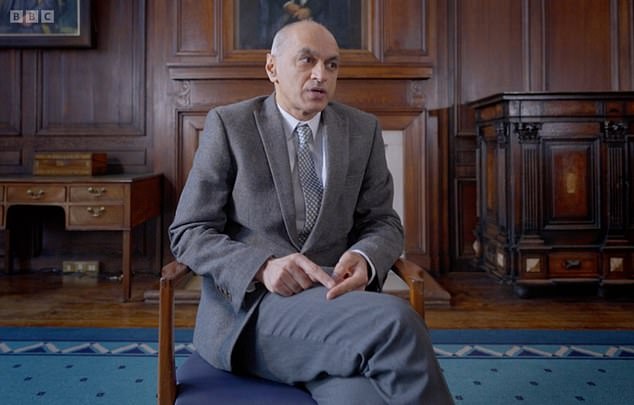Britain’s leader in healthcare targets for obesity says willpower isn’t the cause of overeating – ‘it’s in people’s genes’
The government’s leader in healthcare targets for obesity has claimed that overeating is down to a person’s genes rather than their willpower.
Professor Naveed Sattar from Glasgow suggested that it is wrong to assume that people are ‘lazy or greedy’, and that we should instead look at the genes they have for appetite.
It comes as around 3.4 million adults in Britain are now eligible for weight-loss drugs from the NHS – with one in three people considered overweight.
Speaking on BBC One Panorama: Weight Loss Jabs and the NHSProf. Sattar said it is harder for some to resist unhealthy foods than for others.
‘Many people still think that individuals are lazy or greedy. The reality is that our genes for appetite have not changed in the last fifty years. But what has changed is the environment,” he said.
“So we’ve made it way too easy for people to consume too many calories.”
He added: ‘I think it’s genes. Genes determine your ability to resist food. If you ask 99 percent of obese people if they also want to live with obesity, the answer is no.
‘They have done their best within the context of their lives not to be overweight or obese, but they have not succeeded.’
Professor Naveed Sattar (pictured) suggested that it is wrong to assume that people are ‘lazy or greedy’, and that we should instead look at the genes they have for appetite

Prof Sattar said it is harder for some to resist unhealthy food than for others

An estimated 3.4 million Brits meet the criteria to receive a prescription for Wegovy and Mounjaro, which would cost £10 billion a year
During the programme, Professor Barbra McGowan, clinical lead for obesity at Guy’s & St Thomas’ NHS Trust, suggested that people should actively decide to change their behavior to keep their weight down.
“I think it’s important to tell patients that the medicine will help you get there, but it’s really, really important that behavior is changed, that lifestyle is changed, that diet is changed,” she said.
Weight loss drugs ‘could bankrupt the NHS’ if all eligible patients were prescribed them, it has been revealed.
An estimated 3.4 million Britons meet the criteria to receive a prescription for Wegovy and Mounjaro, which would cost £10 billion a year.
All weight loss shots, including Ozempic, contain semaglutide which mimics a gut hormone that sends signals to our brain to tell us we are full and slows the transit of food through the stomach.
Wegovy and Mounjaro can help people lose between 10 and 25 percent of their body weight.
Research shows that Mounjaro leads to more weight loss than Wegovy, with an average of about 25 percent after one year, compared to Wegovy’s 16 percent.
Treatment with Wegovy is limited to two years, but Mounjaro, also known as the ‘King Kong’ of weight loss shots, has no limits on how long patients can use it.
However, the NHS is rolling out Mounjaro over 12 years because it could overwhelm services.
Over the next three years, an estimated 220,000 people in England will benefit, out of the 3.4 million eligible.
